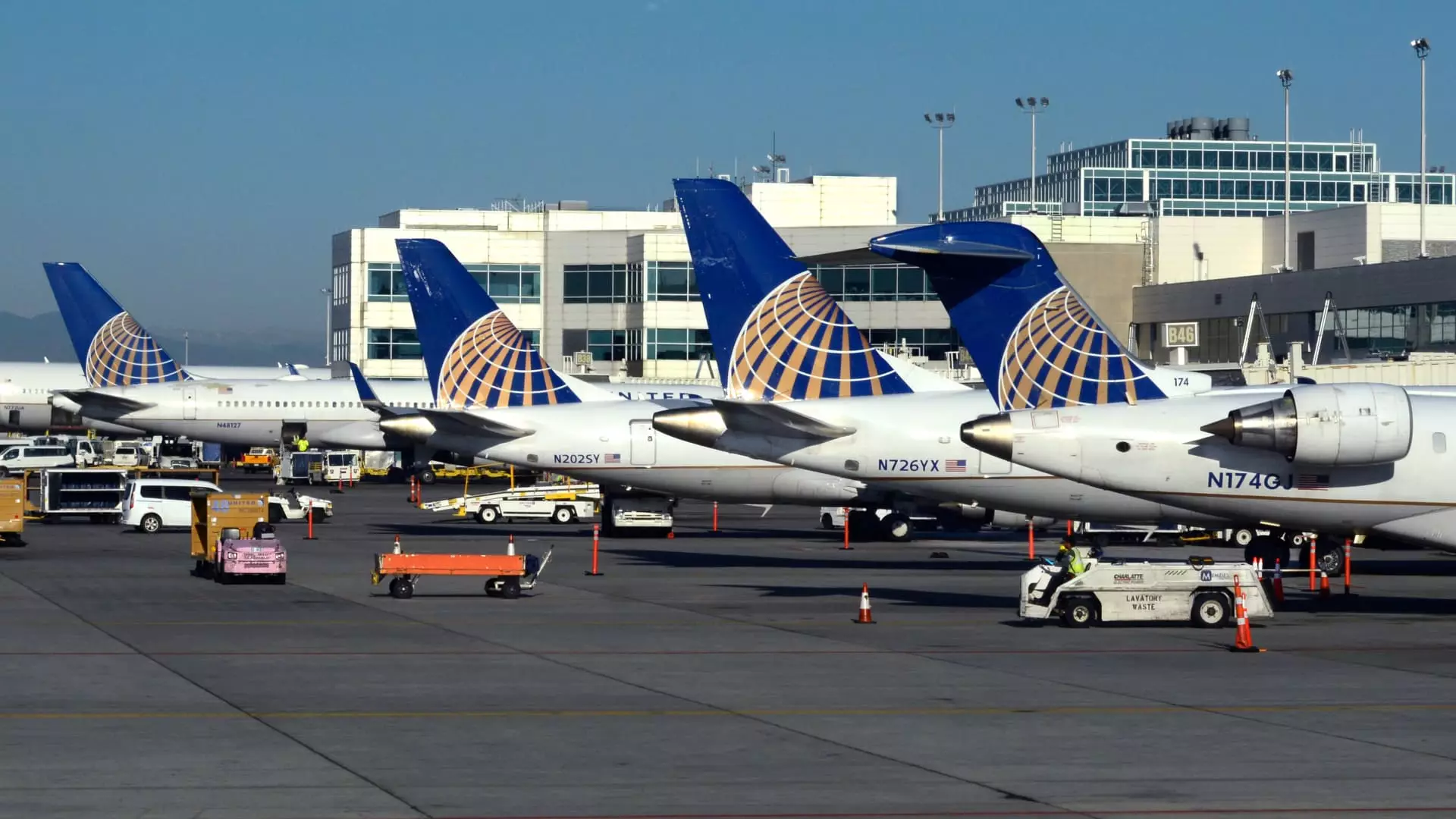In an era where customer experience is paramount, United Airlines’ decision to increase fees for their airport lounge memberships and co-branded credit cards is a bold—and potentially risky—move. Announced on a seemingly innocuous Monday, the airline’s strategy raises pressing questions about consumer loyalty and the perceived value of travel perks amid rising costs. Under the leadership of Richard Nunn, head of United’s MileagePlus loyalty program, the airline is banking on a delicate balance between enhancing customer benefits and imposing fee hikes.
This substantial shift evokes mixed sentiments, particularly from frequent fliers who have come to rely on airport lounges as sanctuaries of comfort. Historically, these lounges offered solace from the chaos of travel, complete with complimentary snacks and Wi-Fi, and were often perceived as essential for long layovers. However, rising demand from an increasing number of travelers with elite status adds an ironic twist: as the pool of premium travelers grows, the comfort of these lounges diminishes. United’s strategy to adjust fees signals a clear intention to monetize this demand.
Perks Coming at a Price
While United Airlines promotes various enhancements to the perks associated with their co-branded credit cards—such as rideshare credits and award travel discounts—the marketing narrative begs scrutiny. Are the new benefits truly sufficient to warrant an increase in fees? Nunn insists that “value increments” will outweigh the rising costs, a statement that invites skepticism. As the airline industry trends toward more exclusive, tiered experiences, the question remains whether consumers will happily absorb these increased costs or seek alternatives.
Loyalty revenue has undoubtedly become a cash cow for airlines in recent years, and United is no exception. The airline boasted a staggering $3.49 billion in “other” revenue last year, largely attributed to card spending and membership fees. A center-right perspective prompts a deeper analysis: while profitability is critical for any business, it should not be pursued at the expense of customer trust and satisfaction. Devaluing perks that frequent flyers have traditionally enjoyed can foster resentment, drawing criticism towards an industry already viewed by many as bloated and profit-driven.
The Dwindling Sense of Value
Moreover, the incremental adjustments to fees come at a time when the travel landscape is shifting dramatically post-pandemic. Travelers are becoming increasingly discerning about where they allocate their spending, especially for intangible benefits like lounge access. An air travel experience, which once thrived on perceived value and customer-centric practices, now resembles a game of chess, with each airline vying for the tallest pawn but sacrificing their rooks in the process.
In essence, United Airlines’ latest adjustments epitomize a broader trend in the industry: pricing practices that often appear absurd and disconnected from the realities of consumer experience. It’s almost as if airlines—like United—are playing a dangerous game of chicken with their customer base, wagering that the allure of premium perks will overshadow the price hikes. If airlines persist on this path with a disregard for customer sentiment, they risk alienating their most loyalty-driven clients, who might just find that spending their money elsewhere offers better satisfaction and perceived value.

